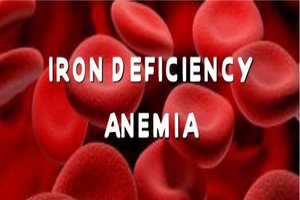- Home
- Editorial
- News
- Practice Guidelines
- Anesthesiology Guidelines
- Cancer Guidelines
- Cardiac Sciences Guidelines
- Critical Care Guidelines
- Dentistry Guidelines
- Dermatology Guidelines
- Diabetes and Endo Guidelines
- Diagnostics Guidelines
- ENT Guidelines
- Featured Practice Guidelines
- Gastroenterology Guidelines
- Geriatrics Guidelines
- Medicine Guidelines
- Nephrology Guidelines
- Neurosciences Guidelines
- Obs and Gynae Guidelines
- Ophthalmology Guidelines
- Orthopaedics Guidelines
- Paediatrics Guidelines
- Psychiatry Guidelines
- Pulmonology Guidelines
- Radiology Guidelines
- Surgery Guidelines
- Urology Guidelines
BSG Guidelines of Iron Deficiency Anaemia (IDA)

British Society of Gastroenterologists (BSG) have released their guidelines of Iron Deficiency Anaemia (IDA) which have been published in Gut.The World Health Organization defines anaemia as a haemoglobin (Hb) concentration below 13 g/dl in men over 15 years of age, below 12 g/dl in non-pregnant women over 15 years of age, and below 11 g/dl in pregnant women.
Iron deficiency anaemia (IDA) occurs in 25% of adult men and postmenopausal women in the developed world and is a common cause of referral to gastroenterologists. Gastrointestinal (GI) blood loss from colonic cancer or gastric cancer, and malabsorption in coeliac disease are the most important causes that need to be sought.
Defining iron deficiency anaemia
- The lower limit of the normal range for the laboratory performing the test should be used to define anaemia (B).
- Any level of anaemia should be investigated in the presence of iron deficiency (B).
- The lower the haemoglobin the more likely there is to be serious underlying pathology and the more urgent is the need for investigation (B).
- Red cell indices provide a sensitive indication of iron deficiency in the absence of chronic disease or haemoglobinopathy (A).
- Haemoglobin electrophoresis is recommended when microcytosis and hypochromia are present in patients of appropriate ethnic background to prevent unnecessary GI investigation (C).
- Serum ferritin is the most powerful test for iron deficiency (A).
Investigations
- Upper and lower GI investigations should be considered in all postmenopausal female and all male patients where IDA has been confirmed unless there is a history of significant overt non-GI blood loss (A).
- All patients should be screened for coeliac disease (B).
- If oesophagogastroduodenoscopy (OGD) is performed as the initial GI investigation, only the presence of advanced gastric cancer or coeliac disease should deter lower GI investigation (B).
- In patients aged >50 or with marked anaemia or a significant family history of colorectal carcinoma, lower GI investigation should still be considered even ifcoeliac disease is found (B).
- Colonoscopy has advantages over CT colography for investigation of the lower GI tract in IDA, but either isacceptable (B). Either is preferable to barium enema,which is useful if they are not available.
- Further direct visualisation of the small bowel is not necessary unless there are symptoms suggestive of small bowel disease, or if the haemoglobin cannot be restored or maintained with iron therapy (B).
- In patients with recurrent IDA and normal OGD and colonoscopy results, Helicobacter pylori should be eradicated if present. (C).
- Faecal occult blood testing is of no benefit in the investigation of IDA (B).
- All premenopausal women with IDA should be screened for coeliac disease, but other upper and lower GI investigation should be reserved for those aged 50 years or older, those with symptoms suggesting gastrointestinal disease, and those with a strong family history of colorectal cancer (B).
- Upper and lower GI investigation of IDA in postgastrectomy patients is recommended in those over 50 years of age (B).
- In patients with iron deficiency without anaemia, endoscopic investigation rarely detects malignancy.
Such investigation should be considered in patients aged >50 after discussing the risk and potential benefit with them (C). - Only postmenopausal women and men aged >50 years should have GI investigation of iron deficiency without anaemia (C).
- Rectal examination is seldom contributory, and, in the absence of symptoms such as rectal bleeding and tenesmus, may be postponed until colonoscopy.
- Urine testing for blood is important in the examination of patients with IDA (B).
Management
- All patients should have iron supplementation both to correct anaemia and replenish body stores (B).
- Parenteral iron can be used when oral preparations are not tolerated (C).
- Blood transfusions should be reserved for patients with or at risk of cardiovascular instability due to the degree of their anaemia (C).
For further reference log on to:
https://www.bsg.org.uk/
biologic functionsblue scleraeBreath-holding spellscell proliferationchest painDNA synthesisenergy productionexcretion mechanismGenitourinaryHeadacheidainflammatory bowel diseaseiron deficiency anaemiaIrritabilitymenstruationmicrocytic hypochromic red cellsrestlessness
Next Story
NO DATA FOUND

Disclaimer: This site is primarily intended for healthcare professionals. Any content/information on this website does not replace the advice of medical and/or health professionals and should not be construed as medical/diagnostic advice/endorsement or prescription. Use of this site is subject to our terms of use, privacy policy, advertisement policy. © 2020 Minerva Medical Treatment Pvt Ltd